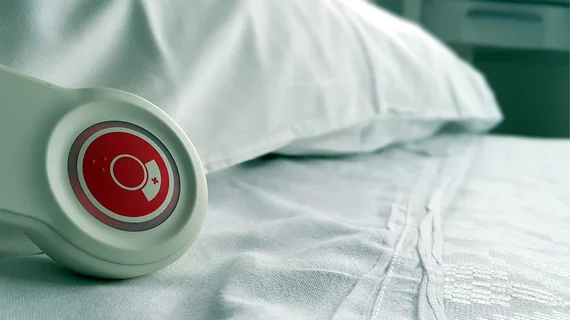Emergency care workers face high risk of verbal and physical assault
Physician residents and emergency care teams face higher risks of both verbal and physical assault while on the job, according to a recent study published in Annals of Emergency Medicine.
The majority–78%–of physicians, residents and staff in one emergency department stated they’ve experienced a violent assault in the last year, including 22% of emergency physician residents, or those doctors still in training and early in their careers. Even more residents–89%–said they experienced verbal assault by a patient in the last 12 months, while 80% of health care workers said the same. The survey included responses from 123 emergency healthcare workers.
"Violent or threatening incidents in the emergency department pose risks to everyone's safety but can also impact health workers' mental health and may increase the likelihood of burnout," Lauren Querin, MD, MS, lead author and emergency physician with the University of North Carolina (UNC) Chapel Hill Department of Emergency Medicine. "These encounters happen frequently and often go unreported."
The figures underscore that emergency room departments should prioritize better protecting residents and health care workers. While many experienced assault, few actually reported the incidents. Only 20% filed an incident report with the hospital or police, while 19% did not discuss the incident with anyone and 53% discussed it with colleagues. Nearly all (96%) residents either spoke about the assault to their colleague or no one at all.
As residents go through their programs, the likelihood they will experience verbal or physical assault also rises, according to the study, with 100% of second- and third-year residents reporting they experienced verbal assault. Not many residents believe there are protections in place to prevent assault. Just 24% said workplace protocols in place at their work are adequate. Another 30% said the protections are sufficient and 38% were unsure.
"More can be done to make sure that every member of the emergency care team can prioritize patient care rather than worrying about their own safety at work," said RJ Sontag, MD, president of the Emergency Medicine Residents' Association (EMRA). "This study looks at one emergency department but stories like these are common nationwide. We must empower residents and others to report these incidents and take the necessary steps to protect health care workers and patients."
The alarming findings come at a time when the healthcare industry is facing a looming demand for workers over the next several years as the baby boomer population ages.

